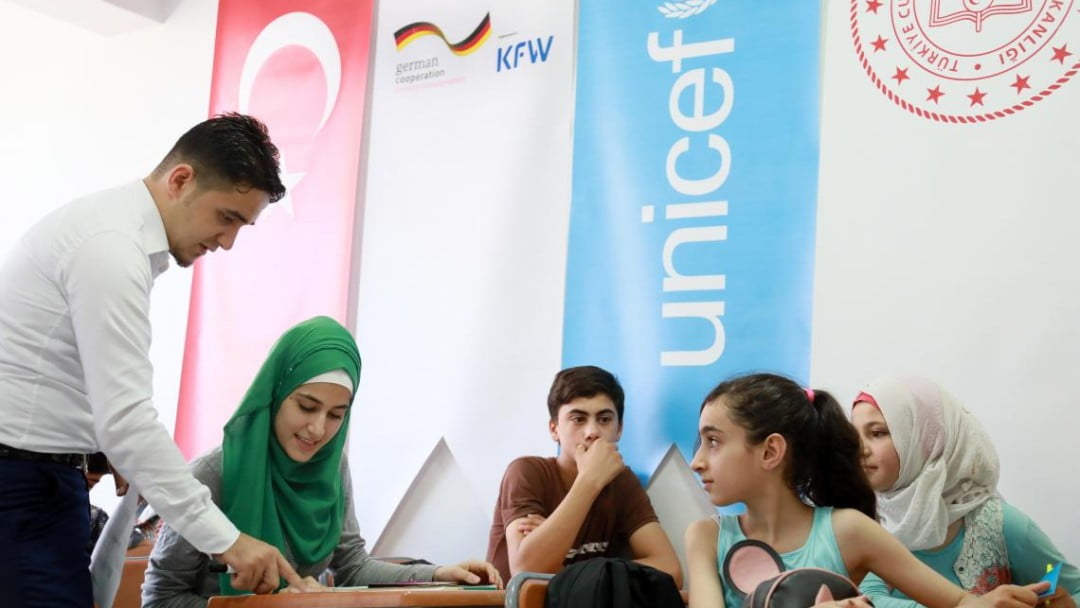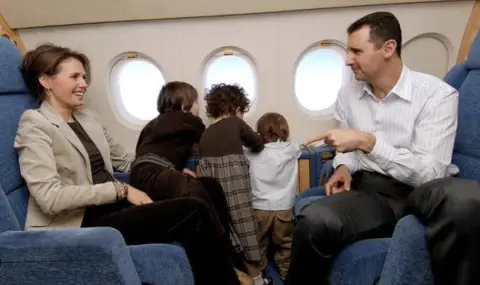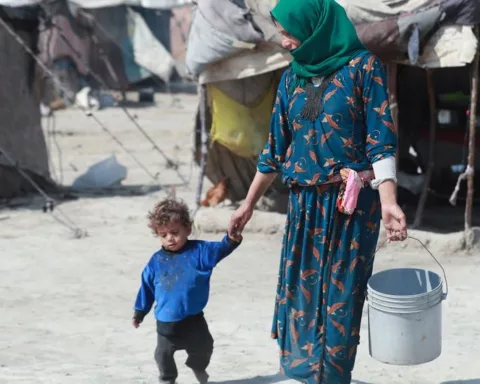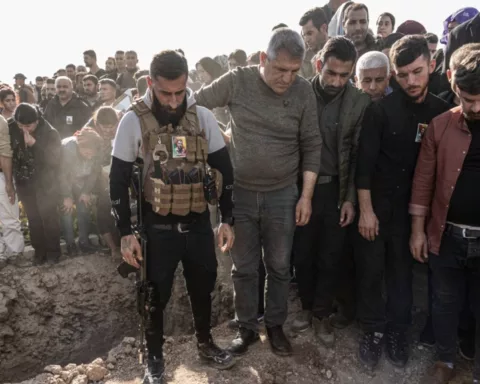Around 1.6 million Syrian refugee children live in Turkey, and not all of them have attended school so far. Corona has made the situation much worse.
The children of Syrian refugees in Turkey suffer particularly from the corona crisis, as they have hardly any access to the Internet and cannot take part in digital lessons. In addition, there are language problems, as many of them do not yet speak Turkish well. Since March, schools in Turkey have been closed due to COVID 19. It is only now that face-to-face teaching is gradually being resumed.
KfW is supporting Syrian teachers in teaching the refugee children in Turkey. The teachers receive remuneration equivalent to the Turkish minimum wage and further training. They help Turkish teachers in class, support the integration of Syrian children in Turkish schools and work in advisory centres. In the Corona pandemic they maintain contact between the schools and the refugee families. There are now 12,000 Syrian teachers working in Turkey, looking after 300,000 Syrian school children.
Since the 2016/2017 school year KfW has already supported the project in four phases, and the contract for the fifth phase was signed at the beginning of October. On behalf of the German Federal Ministry for Economic Cooperation and Development (BMZ) KfW is thus providing a further EUR 50 million for salary payments and further training as well as corona aid measures in the new school year. The project not only improves the educational opportunities of Syrian children, but also ensures a stable income for the Syrian teachers who have fled to Turkey. They also belong to the poor sections of the population there and are dependent on regular income, especially during the pandemic. The project is part of the Middle East employment offensive under the special initiative “Combating the causes of flight, reintegrating refugees”. The project is being implemented by UNICEF, the United Nations Children’s Fund.
“By financing 12,000 teachers, we are creating a very broad impact,” says KfW portfolio manager Sonja Wassermann.
The Corona emergency measures financed from German funds include supporting 250 schools in areas particularly affected by the pandemic in implementing their hygiene concepts. 30,000 counselling teachers will receive further training to enable them to provide psychosocial support in the face of the corona pandemic. A concept for catch-up classes will be developed which combines classroom teaching and digital elements. 400,000 teachers will be trained in this concept, which will benefit many Turkish and some 560,000 Syrian school children.
The families who have fled Syria now live mainly in Turkish cities, with very few remaining in camps. Of the approximately 1.6 million Syrian school-age children in Turkey, 680,000 attended public schools in the country before the Corona crisis. Educational opportunities for Syrian children in Turkey prevent a “lost generation” and ensure the stability of the region.






